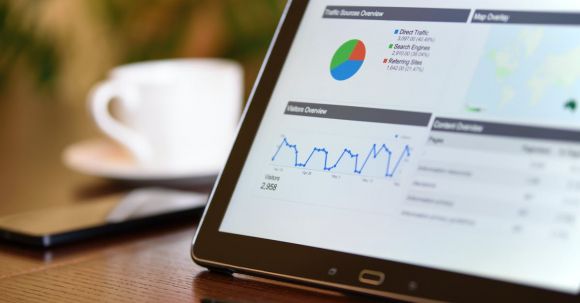In today’s digital age, data has become the new currency. From social media interactions to online purchases, every action we take generates an immense amount of data. This data, when harnessed correctly, has the potential to unlock valuable insights and drive growth for small businesses. In this article, we will explore how small businesses can leverage big data to their advantage and achieve sustainable growth.
Understanding the Value of Big Data
Before diving into how small businesses can leverage big data, it is crucial to understand its value. Big data refers to large and complex data sets that traditional data processing methods cannot handle effectively. This data can come from various sources, such as customer interactions, website analytics, and market trends. By analyzing and interpreting this data, businesses can gain valuable insights into customer behavior, market trends, and competitive landscapes.
Improving Decision-making with Data Analytics
One of the most significant advantages of leveraging big data is the ability to make data-driven decisions. Small businesses can use data analytics tools to analyze customer demographics, preferences, and purchase patterns. By gaining a deeper understanding of their target audience, businesses can tailor their products and services to meet customer needs effectively. This leads to improved customer satisfaction and loyalty.
Optimizing Marketing Strategies
Another area where big data can be a game-changer for small businesses is marketing. With access to vast amounts of customer data, businesses can identify the most effective marketing channels and strategies. By analyzing customer preferences and behaviors, businesses can target their marketing efforts more precisely, resulting in higher conversion rates and improved return on investment.
Enhancing Customer Service and Personalization
In today’s competitive landscape, providing exceptional customer service is paramount for small businesses. Big data can help businesses gain insights into customer preferences, pain points, and satisfaction levels. By analyzing customer feedback and interactions, businesses can identify areas for improvement and deliver a more personalized customer experience. This not only enhances customer satisfaction but also fosters long-term relationships and customer loyalty.
Identifying New Business Opportunities
Big data can also help small businesses identify new business opportunities and stay ahead of the competition. By analyzing market trends and consumer behavior, businesses can identify gaps in the market and develop innovative products or services to meet those needs. Moreover, big data can help businesses anticipate changes in customer preferences and adapt their strategies accordingly, ensuring they remain relevant and competitive in the market.
Mitigating Risks and Fraud Detection
Small businesses often face challenges such as fraud and security breaches, which can have severe consequences. Big data can help identify potential risks and detect fraudulent activities by analyzing patterns and anomalies in data. By leveraging advanced analytics tools, businesses can take proactive measures to mitigate risks and protect their assets.
Embracing a Data-Driven Culture
To fully leverage the power of big data, small businesses need to embrace a data-driven culture. This involves investing in the right data analytics tools, hiring skilled data analysts, and fostering a mindset that values data-driven decision-making. By integrating data analytics into their day-to-day operations, small businesses can unlock the true potential of big data and drive sustainable growth.
In conclusion, big data has the potential to revolutionize the way small businesses operate and drive growth. By leveraging data analytics tools and embracing a data-driven culture, businesses can gain valuable insights, optimize their marketing strategies, enhance customer service, identify new business opportunities, mitigate risks, and stay ahead of the competition. In today’s highly competitive business landscape, harnessing the power of big data is no longer a luxury but a necessity for small businesses seeking sustainable growth.





